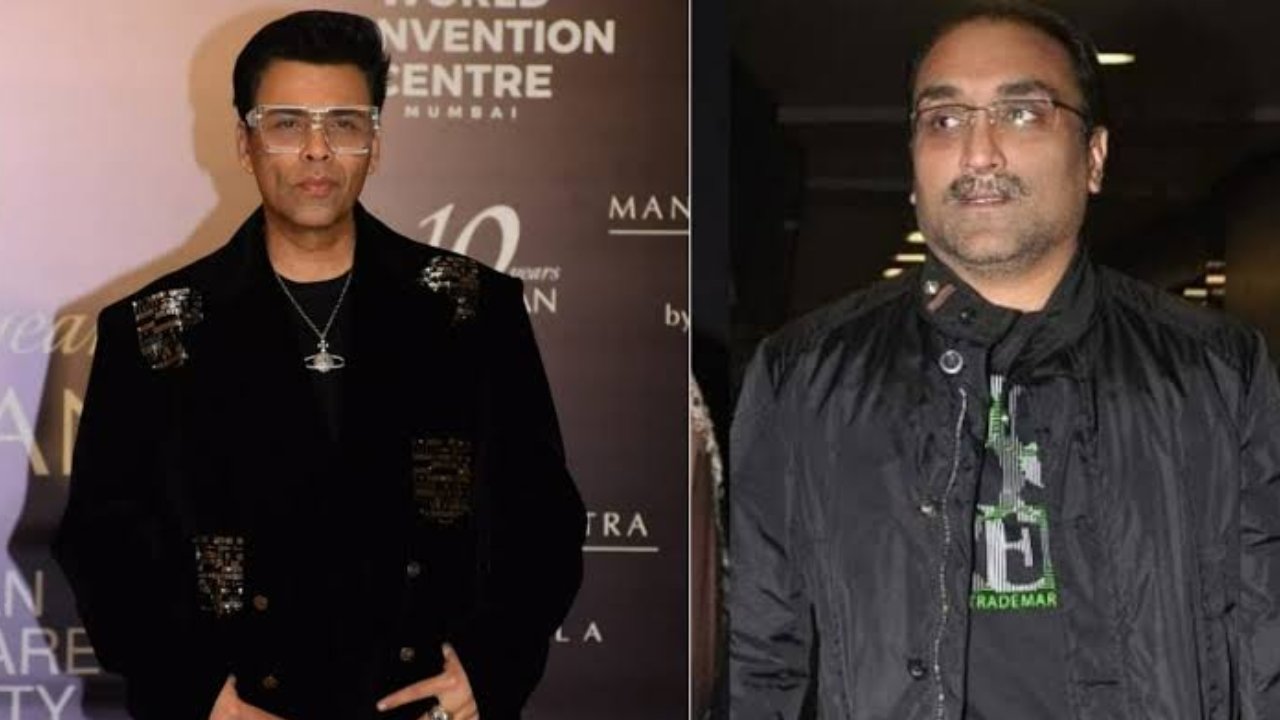Karan Johar’s production Kurbaan and Aditya Chopra’s New York with the latter being released just weeks before the former, were both about a closet-terrorist, Saif Ali Khan in Kurbaan and John Abraham in New York in New York. Both the films were based on terrorism and both the films have been shot in New York and Philadelphia.
Director Rensil d’Silva whose Kurbaan suffered a severe blow at the boxoffice because of Kabir Khan’s New York disagreed that the two films were similar, though both the films explored the same subject. But the fact is, the two films are uncannily similar. Kareena Kapoor’s role in Kurbaan is almost identical to Katrina Kaif’s in New York.Both the actresses are featured in roles of a wife who discovers her husband to be a closet-terrorist.
It is believed that Karan Johar had shared his idea of Kurbaan with Aditya Chopra.
But director Rensil d’Silva refused to believe New York was inspired by Kurbaan. “There can be any number of films on two people falling in love. It’s about how the individual director interprets the emotion of love. Likewise with the theme of terrorism. It’s open to a multitude of interpretations. I’d like to believe my film is essentially different from Kabir’s,”
Kurbaan is unlike the other Dharma films but it too has a love story at its core.
After 9/11 Bollywood and Hollywood latched on to the dramatic potential of the terror attack that destroyed the twin towers in New York . There were notable films like Mira Nair’s The Reluctant Fundamentalist , Karan Johar’s My Name Is Khan , Rensil d’Silva’s Kurbaan, Kabir Khan’s New York and Neeraj Pandey’s A Wednesday.
Rensil began shooting his treatise on Islamic terrorism before 9/11.
He made no changes in the script after 9/11.“I’m shooting the film exactly the way I wrote it initially. What has happened doesn’t alter the worldview on terrorism. It only strengthens it.I’ve been warned that there has been a saturation as far as films on terrorism are concerned. But I believe every filmmaker has his own take on terrorism. Unfortunately the alignment of terrorism with Islam remains unchanged.”
That’s where Rensil sees a problem. “People objected to some of my film’s ideas and my characters’ ideology. But we can’t turn away from the truth. At least I can’t.My film was not grim. It was about a serious global issue. But it wasn’t a documentary on terrorism. It was designed as a fast-paced thriller.”
In Rang De Basanti Rensil D’Silva had taken screenwriting in Hindi cinema to a new level of expressionism. With Kurbaan, Rensil carried the spoken unspoken, visual and metaphorical language of mainstream cinema to an unvisited distant shore.Blending the thorny theme of the political-cultural identity of the Muslim community post 26/11 with the commercial identity of contemporary Hindi cinema is not an easy task.
Kurbaan manages to be many notches superior to other national and international films on global terrorism, a theme that now threatens to turn into a full-blown commercial formula. This was a very thin ice for a debutant director to walk on. Rensil D’Silva’s film says, sometimes right out loud, that a sense of aggressive isolation grips the entire Muslim community. There are either those (like the chanters played by Om Puri, Kirron Kher and Saif Ali Khan) who think a direct action plan of retaliation and retribution is required to save Muslims from mass destruction. Or, more alarmingly, there are those like Vivek Oberoi and his father (Kulbhushan Kharbanda) who are tacitly in favour of violence against their community’s collective persecution.
Either way, Rensil’s film looks at the theme of Islamic terrorism with fearless and brutal honestly. There’s no attempt to dilute the damning exposition on the ghetto-styled fundamentalism of the Muslim community in the US.
The film was shot as an extended crime thriller which penetrates deeper and deeper into the anatomy of a crime thriller until the core of the crisis is reached with painful bluntness. Miraculously the director avoids the shrill will right to the blood-spattered finale. There is room in the commodious narration for disgruntled characters from a multitude of Islamic countries huddled in the US to create retaliatory mayhem. But at the core there are just three characters, the terrorist, his pregnant and rebellious wife and the expose-driven journalist, played by Saif, Kareena and Vivek Oberoi.
Finally Kurbaan belongs to Kareena Kapoor. In one of her most consistently-pitched performances she pulls out all stops to play a betrayed wife with splendid sensitivity. Kareena extends her radiant beauty into an utterly credible character and performance. At her best, Kareena is incomparable. She proves it in Kurbaan.
Much of the credit for Kareena’s compelling performance must go to the written word. Anurag Kashyap and Niranjan Iyenger enter the characters’ dark and anguished world with words that avoid rhetorical excesses. However a key classroom discussion on Islam and the Western World is ruined because even the American students speak in Hindi!
Kurbaan creates a kingdom of doom with a deep understanding of the bonds that bind and separate the Islamic world from the West. It is a critically important work because it spells out uncomfortable truths in a cinematic language that’s riveting and resonant without resorting to extravagant flourishes and fireworks.


